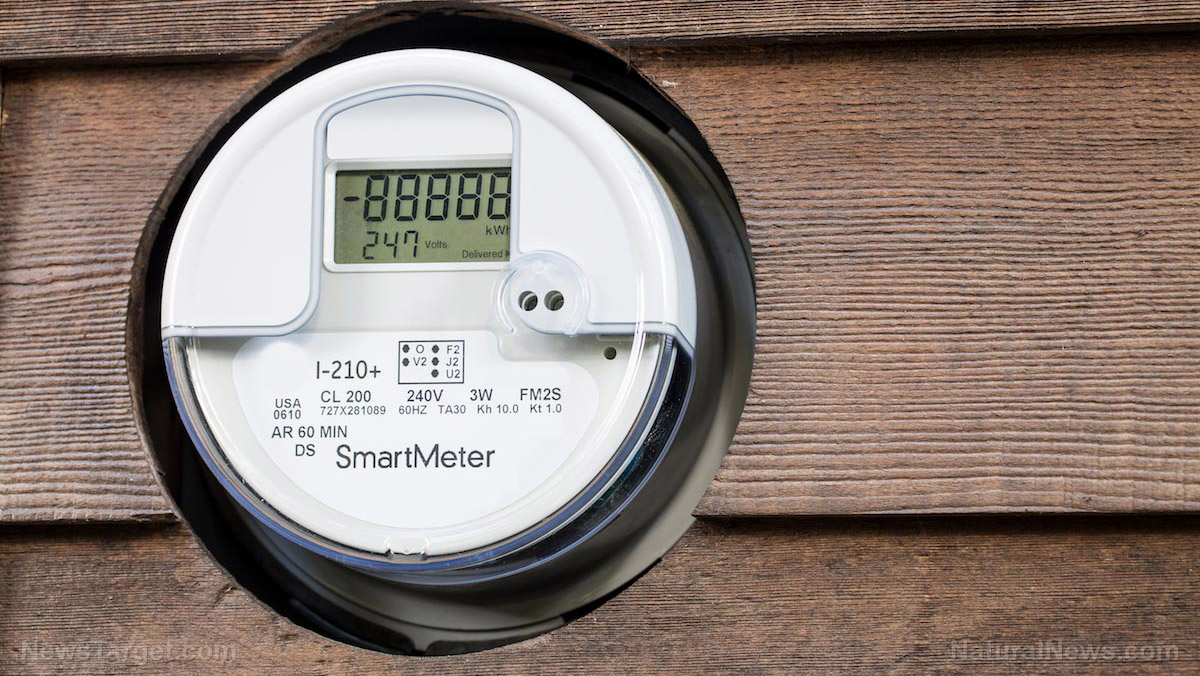Learn about brain health and nootropics to boost brain function
Smart Meters to start tracking dementia patients in the U.K. as Big Brother wields medical surveillance tech against its own citizens


(Natural News) Smart Meters have drastically changed how utility companies collect energy usage data from customers. Old-fashioned meters had to be checked manually, but they ensured privacy for the homeowner. Now Smart Meters share data on energy usage with third parties, tracking and analyzing every use of natural gas, electricity, and water within the home.
This valuable energy usage data is now being shared with governments and medical institutions to conduct medical surveillance against citizens. In the United Kingdom, Smart Meters will be used to track dementia patients’ household habits to monitor for sudden changes that indicate illness, falls, or mental decline. The National Health Services (NHS) will be in charge of the surveillance program.
Smart meters automatically send usage information in real time to the energy supplier. This data is now being used to track daily routines and monitor people’s whereabouts. In the near future, the government of the United Kingdom will know every time someone cooks dinner, uses a washing machine, or takes a shower. If an irregularity shows up in a household routine, the computer will send an alert to family members.
NHS to begin using Smart Meter data to monitor patients
The first goal is to help the growing number of dementia patients to live independently at home while being monitored by Smart Meter technology. The NHS hopes to reduce admissions to A&E and thin out overcrowded nursing homes. At least 50,000 dementia patients are admitted annually for illnesses and injuries that are preventable. As much as 70 percent of care home residents have dementia. The U.K. is home to nearly 850,000 dementia patients, a public health problem that is expected to double over the next thirty years.
The power of the elements: Discover Colloidal Silver Mouthwash with quality, natural ingredients like Sangre de Drago sap, black walnut hulls, menthol crystals and more. Zero artificial sweeteners, colors or alcohol. Learn more at the Health Ranger Store and help support this news site.
The first dementia patient surveillance test will be conducted on 50 patients in October 2019. Researchers from Liverpool John Moores University and Mersey Care NHS Trust will oversee the program. The central computer system will analyze patient habits every ten seconds. The program will know which appliances and lights are being used at specific times, to make sure the patients continue in their routine.
As marketing firms and hackers scramble to get a hold of valuable Smart Meter data, home privacy is put at risk. Martyn James, a consumer rights expert, warns, “Finding new and creative ways to support vulnerable people in their own homes is a good thing, but this proposal opens the door to a huge range of privacy concerns.”
“We should be extremely wary when it comes to allowing businesses and organizations access to this level of data – and the fact that it can be taken in this level of detail raises the question: What else is technology revealing about our private lives and what if it falls into the wrong hands?”
If criminal organizations obtain access to the data, they can learn the times when people are most vulnerable to be robbed. In the future, governments may use this system to control how much energy homeowners can use, or the government may work with advertisers to find ways to change citizens’ behavior in their own home.
Also, there is the possibility that the government uses Smart Meter data for wide scale medical surveillance of all citizens. Those in favor of this system have already come out in support of using Smart Meters to monitor and track people with mental illness, depression, and schizophrenia.
This technology will replace human love
The saddest downside to the surveillance of citizens with brain deterioration and mental illness is that the technology is essentially being used to replace human interaction, human touch, and real human concern. Human connection is the best way to enhance the quality of life for people with dementia, Alzheimer’s, and mental illness, but as families rely on computer monitoring of their loved ones, the human connection is lost. Families will become obligated to a computer alert system to enforce that their brain-damaged loved one is complying with a daily routine. Families will be told when to look after their loved one and when to love them, and it is sad.
For more on this topic, visit SmartMeters.News.
Sources include:
Click here to view full article